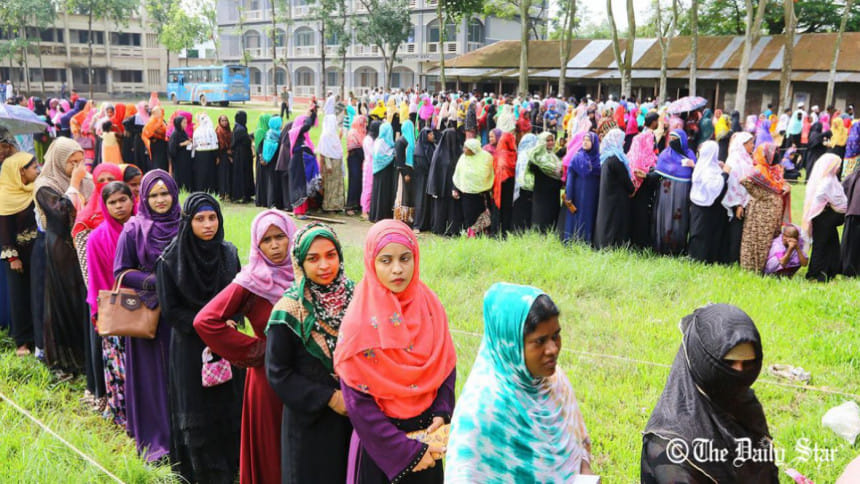What we can do to keep the train of democracy on track

Emocracy works only if people who have the right to vote can exercise that right without fear or favour.
This is increasingly being challenged by the political atmosphere of the country. For starters, elections are supposed to be held in a free and fair political environment. The institution that is in charge of securing that environment is the Election Commission—an independent state agency entrusted with the triple ordeals of: 1) administering political registrations, contestant nominations and participatory elections in an honest, transparent and credible fashion; 2) making local government functionaries maintain neutrality towards all candidates; and 3) confirming election results strictly as per election rules that reflect the will of the people.
The only way the above challenges can be met if the Election Commission asserts its independence and earns the confidence of the people. Forty-seven years after we have achieved independence as a nation, we seem to be still uncertain as to how to secure a participatory and honest election. It is, therefore, a historic opportunity for the Election Commission to rise up to the occasion and deliver a great election that would be beyond reproach.
For that to happen, the party in power has to give the EC a wide berth in the discharge of its responsibilities and allow open communication with all quarters in a spirit of patriotism and inclusivity. At the same time, the concerns of political parties or factions that are not part of the government need to be given due importance and addressed according to the merit of the issue.
Leading up to the elections, the local administrators have to be allowed to function in a non-partisan fashion as per the code of civil service. However, in view of the increasingly partisan pressures on civil servants and other state functionaries such as those in the field administration, police and judiciary that we have witnessed in the last few decades, people find it hard to accept that the administration will behave in a non-partisan fashion if not closely supervised by the agency meant to keep any partisan administrators and law enforcers in check. That is the tallest order of the day for the EC.
Now that the election schedule has been declared, the process of nomination filing and campaigning is in full swing. Overzealous campaigning by candidates and use of state machinery for political gains by those in control of such state assets are a real possibility where the EC needs to step in like an impartial umpire to prevent such contravention of fair-play rules. The election economics is another major concern which is not in favour of professionals and honest politicians. The EC mandates a maximum expenditure of Tk 25 lakh but it is common knowledge that several crores are spent by the rich and powerful candidates openly flouting the limits set by the law. It would be interesting to see how the EC addresses this thorny issue.
On the election day, all voters need to feel safe while going to polling centres to cast their votes as per their choice without coercion, enticement or fear of retribution. This will be possible only if the polling officers and law enforcers carry out their roles dispassionately as impartial agents of the state.
Each of these tasks will require a highly charged EC armed with an indomitable zeal to deliver participatory and credible elections to the nation. Accordingly, the EC needs to have the appropriate administrative machinery and budget. We can only hope that is the case as the current EC has been in office for nearly three years now.
It is very encouraging to see that the head of the government has engaged in dialogues with a number of political parties and coalitions which has created some space for the contestants affiliated with parties not part of the ruling coalition to take part in the electoral process. Dialogue is the sine qua non of a democratic polity. For the nation to see a fully functioning parliament, such dialogues are paramount even when prickly issues stand in the way of civil discourse.
In the end, all political parties—those in power and those outside of it—are part and parcel of our rich polity. Our vibrant political legacy has produced some of the greatest leaders in history that have brought us the eighth largest independent nation in the world (in terms of population). We can be proud to be a part of a nation that is taking confident steps toward economic development and social progress. It is heartening to see that contestants from all political shades are taking part in the upcoming election. It is a simple wish of the common men and women of the country that their collective political will prevails irrespective of party affiliation, money or force.
Habibullah N Karim is an author, policy activist, investor and serial entrepreneur. He is a founder and former president of BASIS and founder/CEO of Technohaven Company Ltd.
Email: [email protected]





Comments